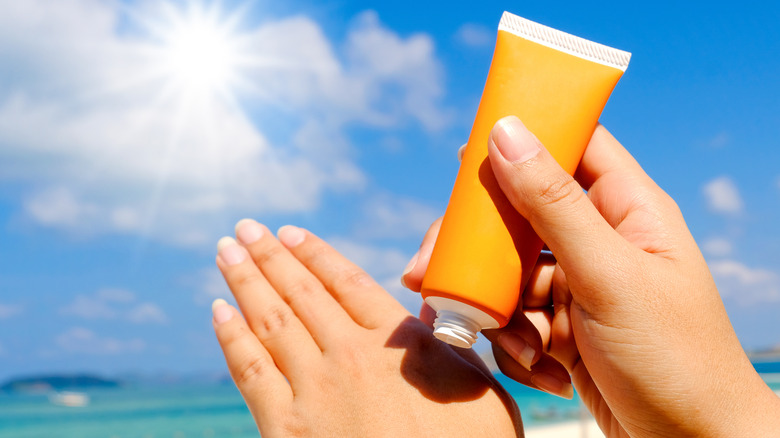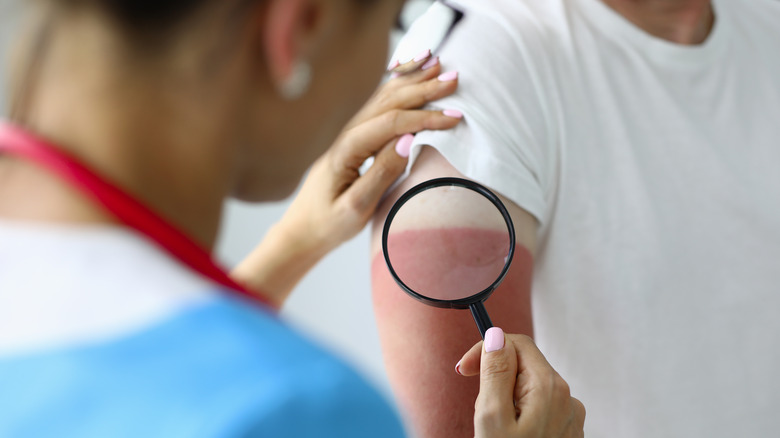What To Do If You Have Sun Poisoning
Every year, sun lovers wait for summer to arrive so that they can go to beaches and parks to soak up the sun. But summer skincare is essential, whether you're lounging poolside in your favorite bikini or playing an outdoor sport.
Lying under the sun is one of the best feelings in the world. What's more, the sun doesn't even properly show up in some parts of the world throughout the year, so summers provide people with their only chance to get some vitamin D from the sun's rays (per the National Institutes of Health).
However, tanning can be risky. You have to spend hours under the sun to get an even tan across your body. And if you're not careful, you could develop red patches on your skin instead of getting a tan. If you've been out in the sun for a long time and can see red patches on your skin accompanied by a burning sensation, you are likely suffering from sun poisoning — a condition that could turn a few hours of pleasure into several days of agony. Keep reading to learn more about what to do if you have sun poisoning.
What exactly is sun poisoning?
According to Healthline, sun poisoning occurs when a person's body experiences severe sunburn. In medical terms, sun poisoning is also called polymorphic light eruption. It happens when your skin gets exposed to harmful ultraviolet (UV) rays from the sun. Even when it's not very sunny out there and the weather is cloudy and cool, UV rays can still damage your skin and cause sunburn, per the Mayo Clinic.
There is also a significant difference between sun poisoning and a typical sunburn. For instance, while a sunburn may leave your skin red and swollen, sun poisoning can affect your entire body by triggering symptoms. Some of the symptoms of sun poisoning include redness, swelling, and blistering of the skin, rash, nausea and dizziness, pain, itching, dehydration, and even fever and chills, among others, per WebMD.
If you are suffering from sun poisoning, don't go for home remedies to cure your condition. Instead, seek medical treatment as soon as possible so that you can get relief from your pain and reduce the chances of developing complications, Healthline explains.
Seeing a doctor is essential to treat sun poisoning
If you're experiencing sun poisoning, the first thing you must do is to get out of the sun, according to WebMD. The longer your skin gets exposed to UV rays, the worse your condition will get.
Next, you can take a cool shower or apply cold compresses to the affected areas of your body. Moreover, even if you're not feeling thirsty, sun poisoning leaves your body dehydrated, so drinking plenty of water and fluids can help replenish the cells of your body and skin. But as aforementioned, sun poisoning requires medical attention to prevent your skin from developing complications, so go to your healthcare provider as soon as possible.
Typically, your doctor will administer intravenous (IV) fluids to hydrate your body and creams containing steroids to treat your blisters and rashes, Healthline explains. Treatment may also include oral steroids to cure pain and swelling and antibiotics to prevent infection.


